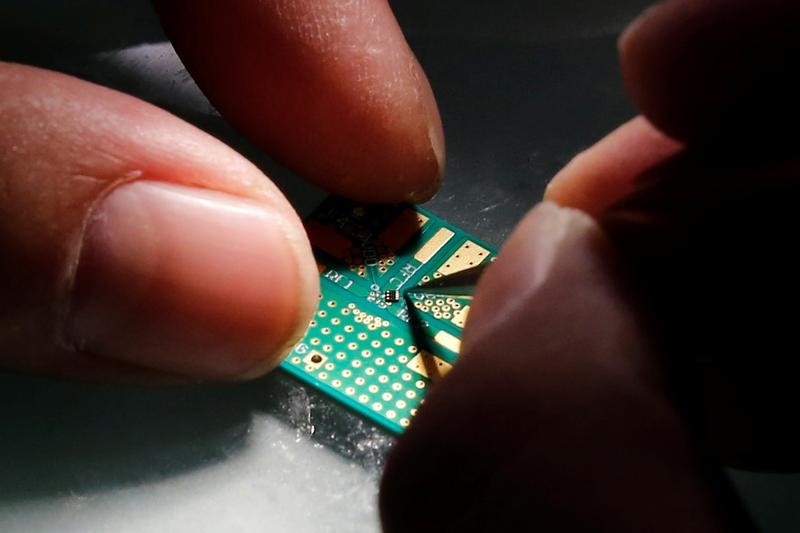Investing.com – ASML (AS:ASML) shares jumped on Wednesday after Reuters reported that the U.S. will exempt some allied countries from new restrictions on chip equipment exports to China.
The Biden administration is set to unveil a new regulation next month that will enhance U.S. authority to halt the export of semiconductor manufacturing equipment to certain Chinese chipmakers, the report stated citing two sources familiar with the matter.
The new rule, an extension of the Foreign Direct Product rule, will target about half a dozen of China's most advanced chipmaking fabs. The regulation aims to curb China's progress in supercomputing and artificial intelligence, potentially benefiting its military capabilities.
Countries such as Israel, Taiwan, Singapore, and Malaysia are expected to be affected, while major allies exporting critical chip making equipment, including Japan, the Netherlands, and South Korea, will be excluded from these restrictions.
ASML and Tokyo Electron will be unaffected by this new rule, the report said. This exclusion is significant as it allows these companies to continue their operations without the disruptions anticipated for other equipment manufacturers.
The draft rule, still subject to change, underscores the U.S. strategy to maintain pressure on China's semiconductor sector while avoiding friction with key allies. The new regulations will also lower the threshold for U.S. content in foreign products, closing a loophole that previously allowed certain products to bypass export controls.
The U.S. also plans to add about 120 Chinese entities to its restricted trade list, including chipmaking fabs, toolmakers, and providers of electronic design automation (EDA) software.
This move reflects ongoing efforts to counter China's advancements in semiconductor technology while maintaining diplomatic relations with allied countries.
The strategic exemptions for Japan, the Netherlands, and South Korea highlight the U.S.'s diplomatic balancing act. According to the Commerce Department, country classifications are based on diplomatic relationships and security concerns, ensuring that export controls are both effective and fair.
